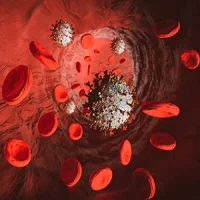In patients who recover consciousness after cardiac arrest (CA), a subsequent death from non-neurological causes may confound the assessment of long-term neurological outcome. Researchers developed the so-called “Best CPC” (i.e., as for Cerebral Performance Category) project with the aim to assess the prevalence and causes of death after awakening (DAA) in CA patients before hospital discharge.
You might also like: Predicting Neurologic Outcome in Cardiac Arrest Patients
An observational multicentre cohort study was performed on patients resuscitated from CA (n = 4,646) in eight European intensive care units (ICUs) from January 2007 to December 2014. DAA during the hospital stay was extracted retrospectively from patient medical records. Results show that 4.2% of CA survivors admitted to ICU eventually die after regaining consciousness. Re-arrest was the most common cause of DAA in the early phase after CA while acute respiratory distress syndrome (ARDS) and sepsis were the most common causes of death thereafter.
Although the term "DAA" was used in this study, “Best CPC” (i.e., the lowest CPC score obtained during the entire ICU and hospital stay on a daily clinical assessment) or “CPC 6” (i.e., death for all causes after regaining consciousness in contrast with CPC 5, which would identify all non-survivors without regaining consciousness prior to death) could also be valuable alternative definitions of this finding, according to the research team.
This multicentre study confirms that a proportion of non-survivors show neurological recovery prior to death before hospital discharge. This best neurological status of CA patients, the researchers point out, should be reported in all studies to better characterise the evolution of such patients, in particular if neuroprotective interventions are evaluated.
DAA is a relevant “early” outcome to be reported together with long-term neurological outcome, quality of life, and cognitive function among CA survivors. In addition, if not properly addressed, DAA may cause false-positive results and reduce the prognostic accuracy of outcome predictors after CA, the researchers explain.
Study authors say they do not have enough data to conclude whether re-arrest in their cohort resulted from persistent circulatory failure, coronary lesion without effective revascularisation, or if it was an unexpected complication (i.e., malignant arrhythmias) in haemodynamically stable patients.
However, they note that the presence of these potentially treatable causes of death, such as unexpected re-arrest, sepsis, or ARDS, underlines the importance of accurate monitoring and surveillance of CA survivors in the early phase. Future research should focus on the epidemiology of DAA in this setting, as well as the potential preventive and therapeutic measures to avoid these deaths (i.e., early coronary angiography, protective ventilation, digestive decontamination).
Source: Critical Care
Image: iStock
References:
Taccone FS et al. (2019) Death after awakening from post-anoxic coma: the “Best CPC” project. Critical Care 23:107 https://doi.org/10.1186/s13054-019-2405-x
Latest Articles
cardiac arrest, Coma, Best CPC Project, neurological outcome
In patients who recover consciousness after cardiac arrest (CA), a subsequent death from non-neurological causes may confound the assessment of long-term neurological outcome.










